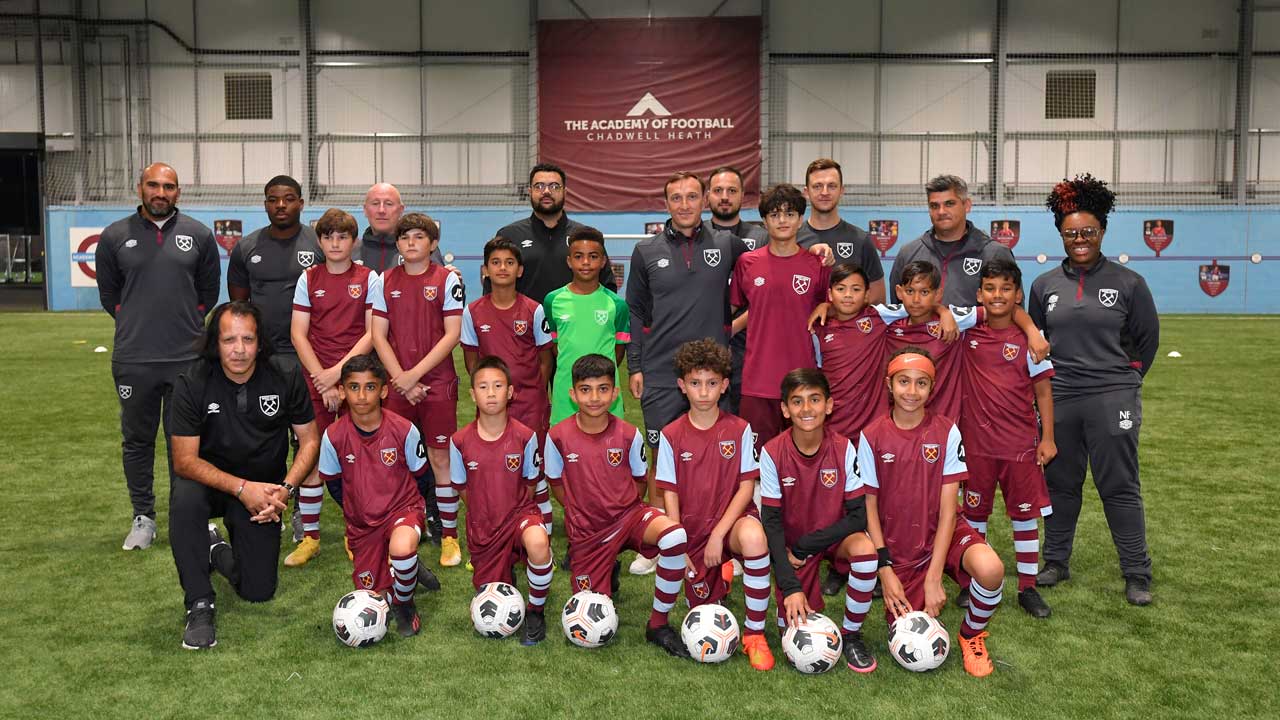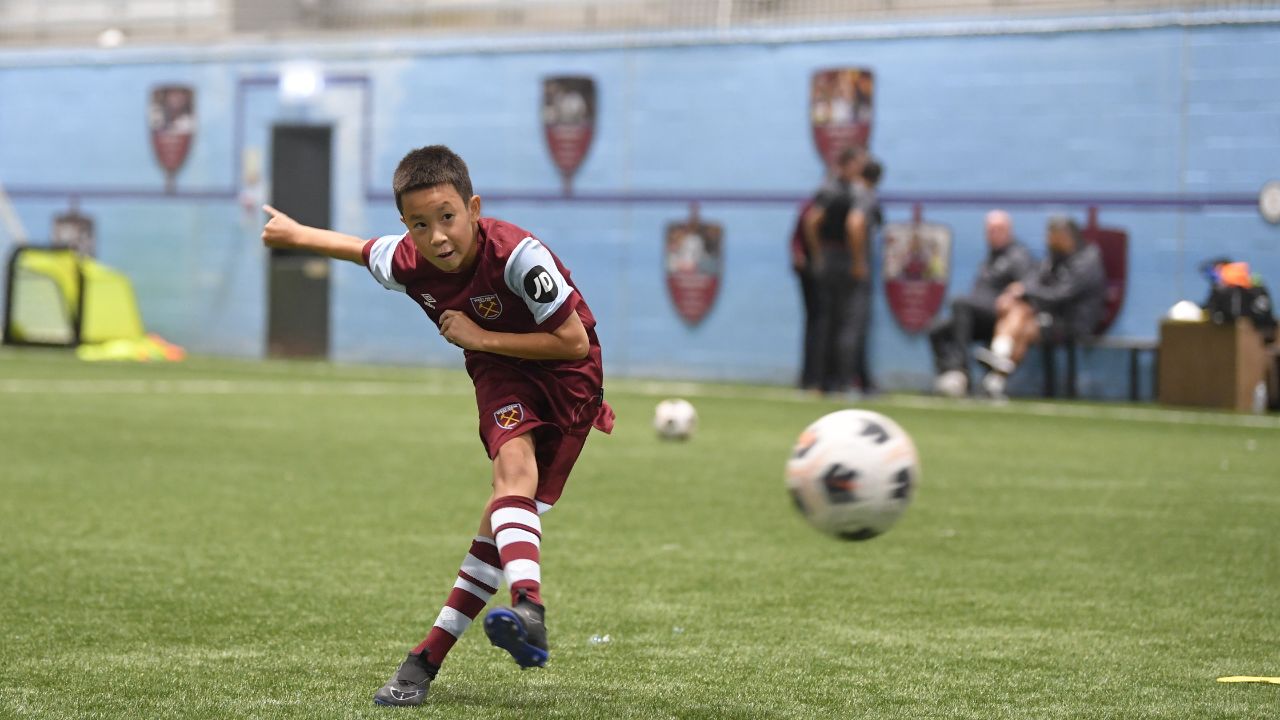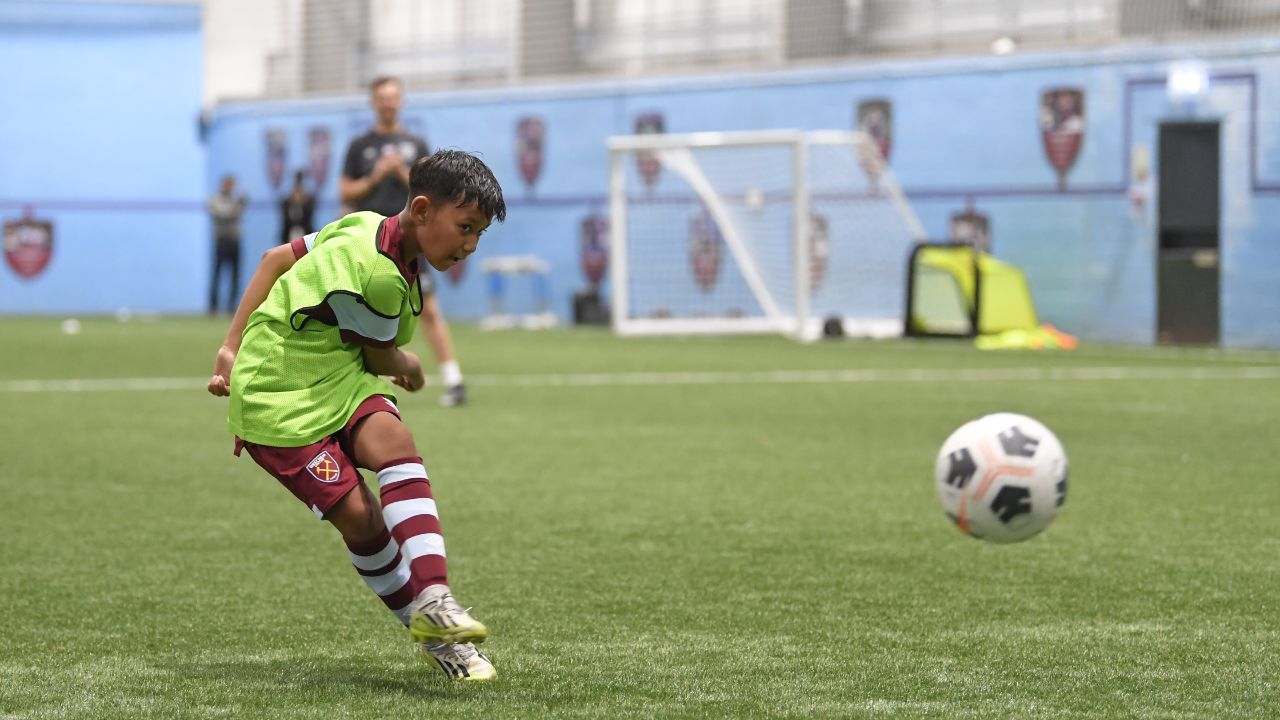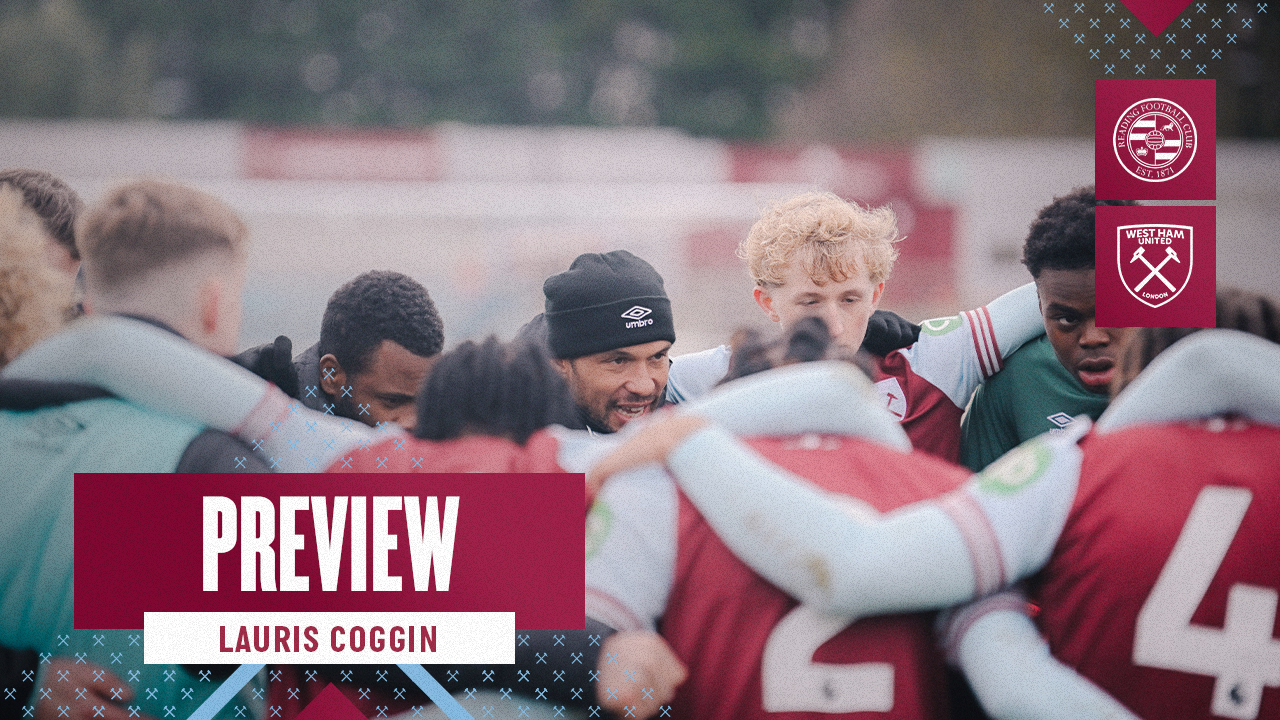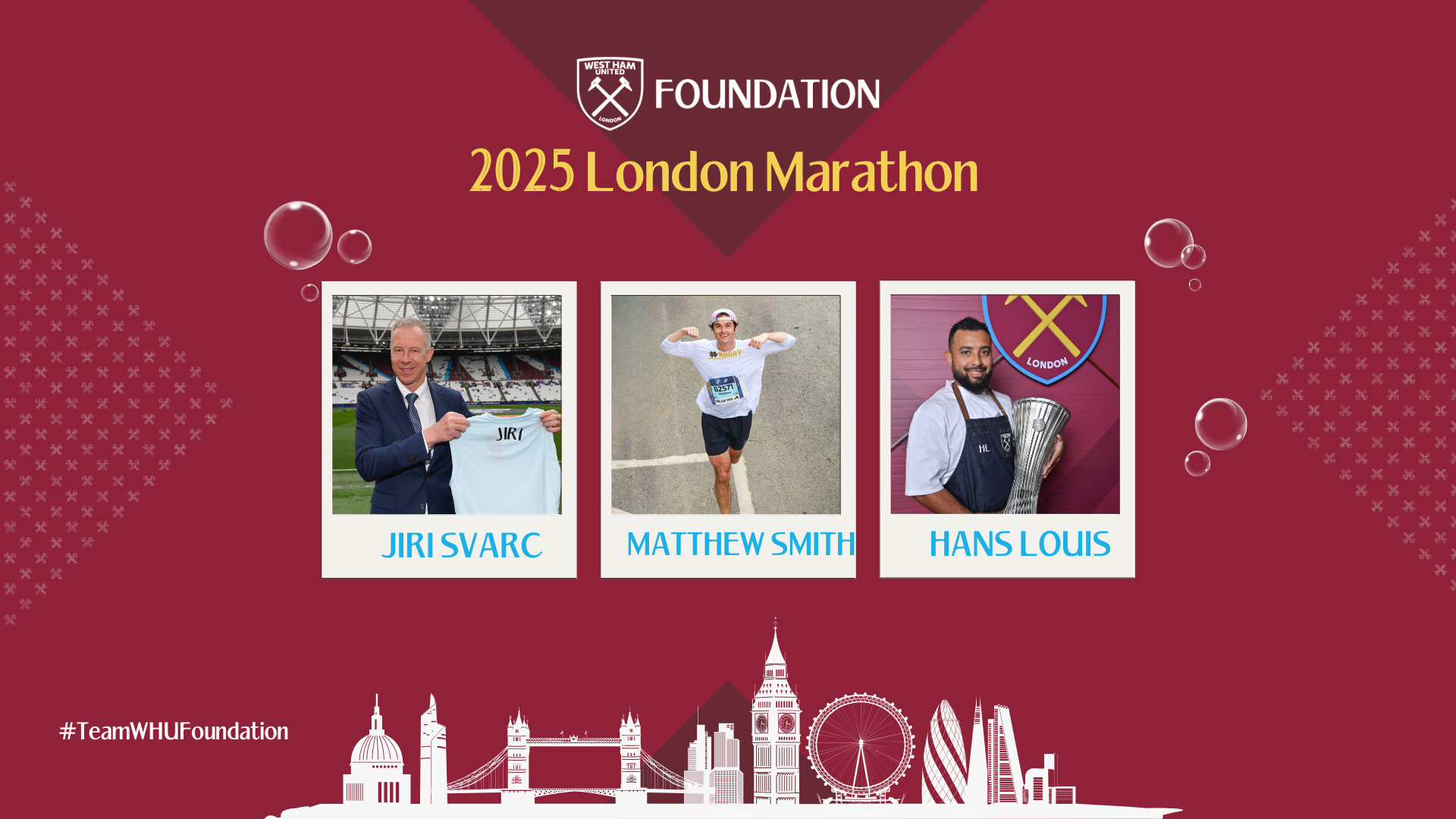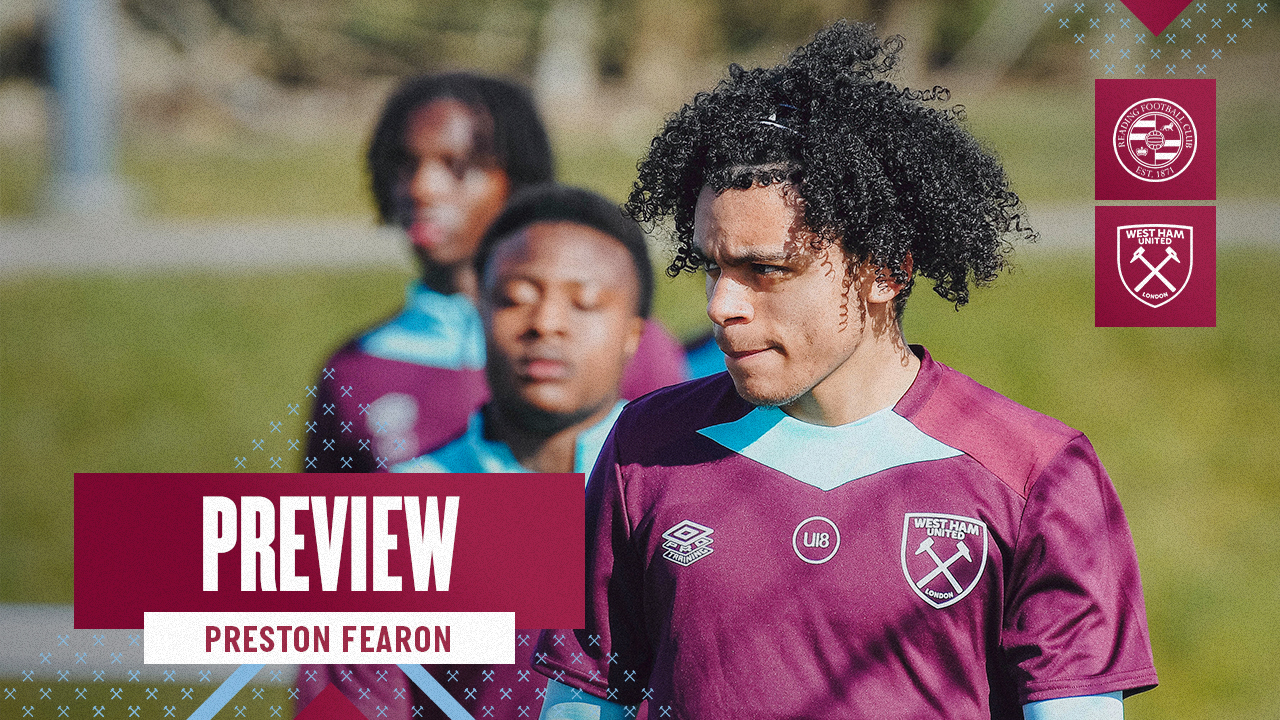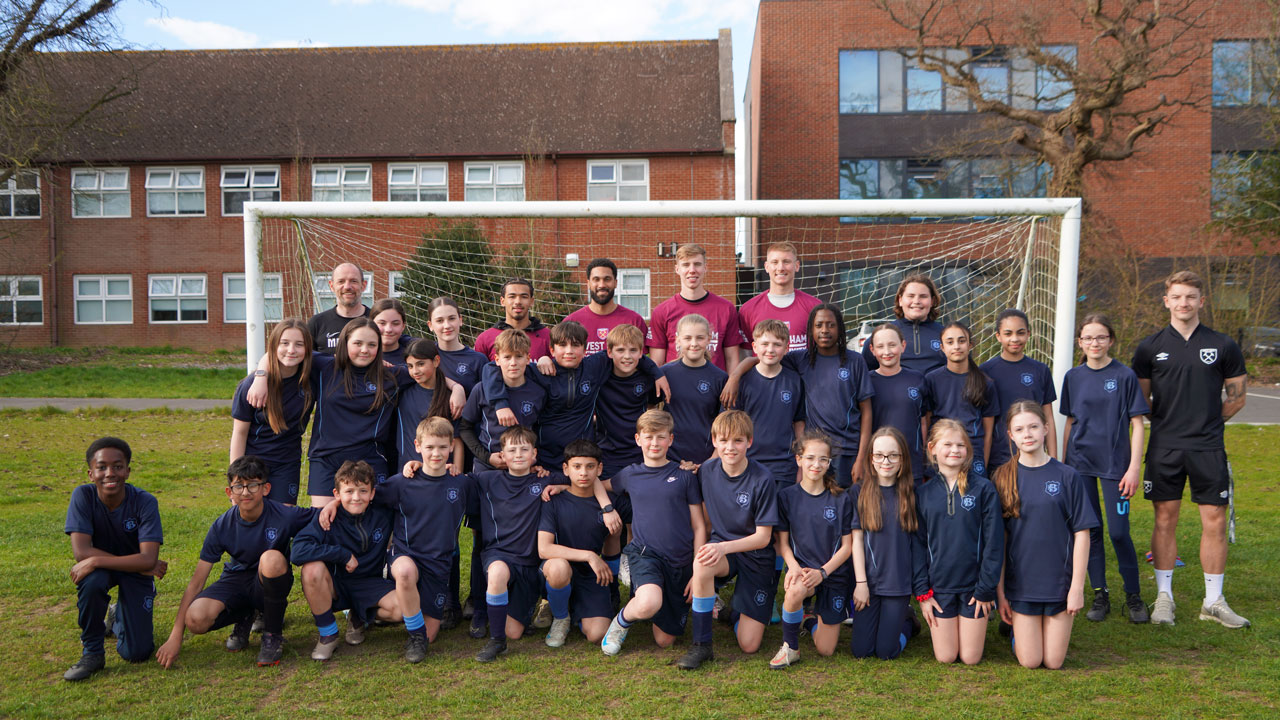With more than 325,000 South Asians living in the London Boroughs of Newham, Redbridge, Tower Hamlets, Barking and Dagenham and Havering, and many of them being football lovers, it makes perfect sense for West Ham United to forge strong links with the South Asian communities of east London.
With the South Asian ethnic group significantly underrepresented across football, in line with the Club’s commitment to equality and diversity, the Hammers have instigated a number of initiatives to improve the situation.
In 2021, the Club created the role of Academy Link Mentor to provide opportunities and pathways for male and female players and coaches from South Asian backgrounds, appointing the experienced and popular Rashid Abba, who has worked in the community sector for three decades, to the role.
Abba and his team have since hosted workshops for South Asian coaches and scouts and training sessions for grassroots clubs with South Asian players, and played a leading role in the Premier League’s South Asian Action Plan.
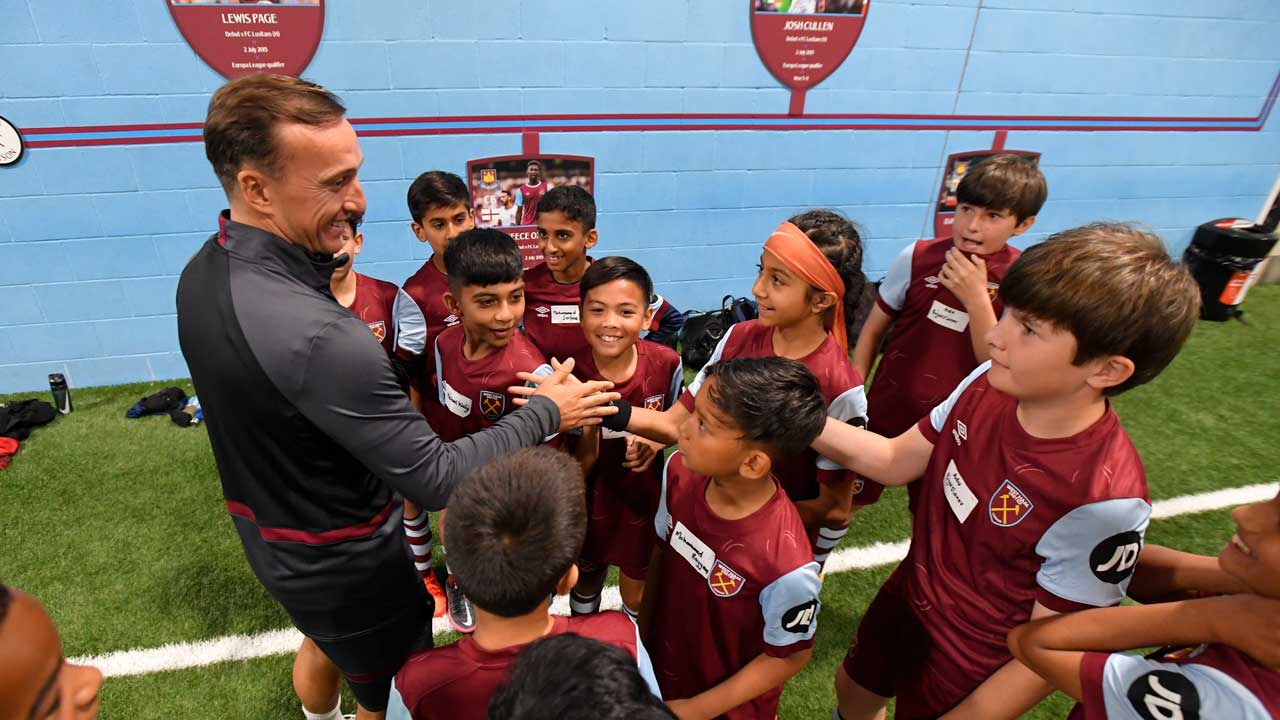
In 2022, the Club launched the Emerging Hammers programme, which gives young players aged 14 or under the opportunity to develop prior to potentially entering the Academy of Football, in partnership with Ilford-based Frenford Clubs. The Academy’s partnership with Frenford Clubs sees them work closely on strategies to widen the talent pool of potential players, coaches and scouts from South Asian communities.
Since the launch of Emerging Hammers, over 25 young players have been invited to join the Academy of Football and continue their football journeys under the guidance of West Ham coaches and mentors.
Earlier this year, the Academy were invited to field a team at the Premier League Next Generation Cup in India, with a number of FA Youth Cup winners forming part of the squad which travelled to Mumbai in May.
In August, four teams from clubs across east London and south Essex including a number of South Asian players represented the Hammers at the Premier League South Asian Emerging Talent Festival at Loughborough University.
All of the above showcased West Ham United’s commitment to increasing participation in football by British South Asians, and this commitment was shown again with the visit of a group of Emerging Hammers to Chadwell Heath in October.
Players from South, East and Central Asian backgrounds enjoyed a session at the Academy’s historic training ground led by U11 and U12 Lead Coach Ross Clarke Brookes and Foundation Phase Lead Nicole Farley, with their parents invited to watch from the viewing gallery.
The players were also given words of encouragement from Sporting Director Mark Noble, who himself grew up in east London before joining the Academy of Football as a schoolboy and going on to become Club captain and make 550 first-team appearances.
Noble, Academy Director Kenny Brown and Head of Academy Coach Development Kalam Mooniaruck watched the session and commented favourably on the quality of the play, expressing their hope that a player of Asian heritage will make the breakthrough in the future.
To find out more about the how West Ham United is working with the South Asian communities of east London, email Rashid Abba at [email protected].
Academy Link Mentor Rashid Abba has been working to encourage people from ethnic minority communities into football for three decades since starting his career with an Asians in Football initiative at Leicester City…
I have been working for a long time in the community to strengthen my links with grassroots and increase the number of South Asians in the game.
For me, coming into this country after being born and raised in Malawi in Africa, I wanted to become a football coach because I thought I could give back to the community.
In 2004, West Ham launched some work in the Asian communities in Tower Hamlets and Newham and I took on a role training up the local coaches. Obviously, the Club has been very supportive of what I’ve been trying to do and I’m now in my 20th year and I want to make sure opportunities are not missed.
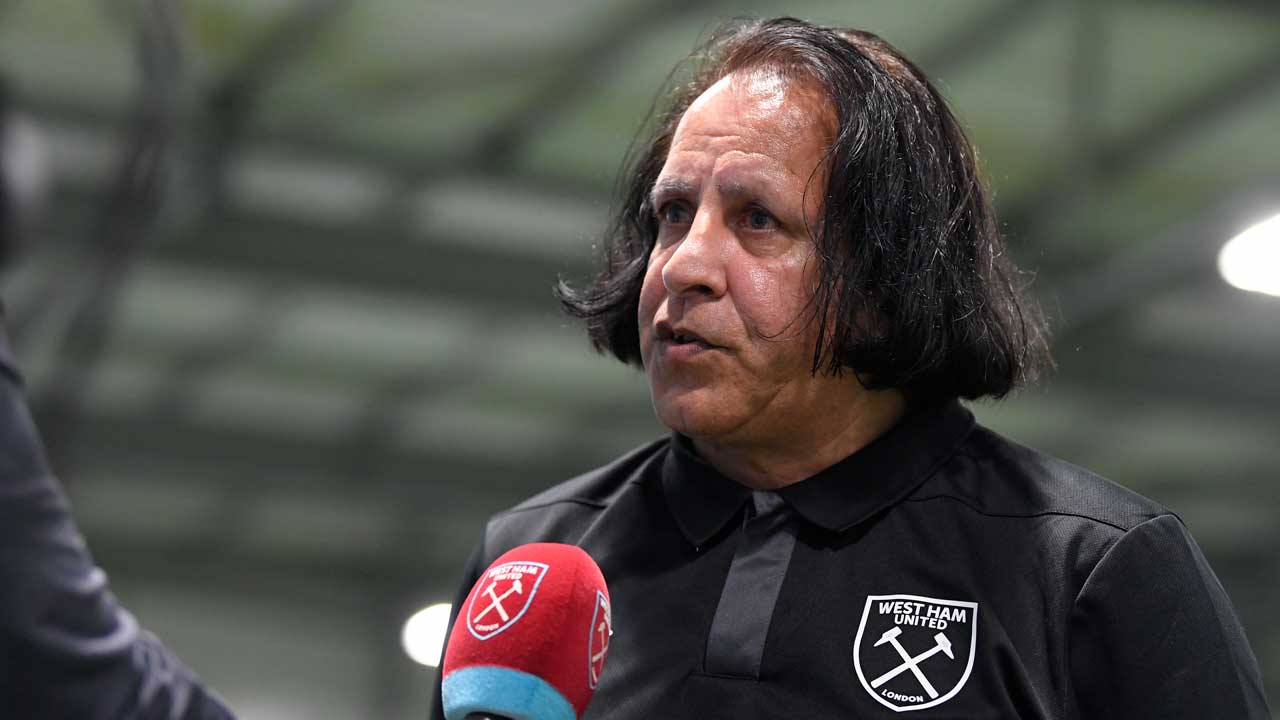
We have a big, big Asian community in east London and having close links with grassroots clubs and coaches means we can widen the net and provide opportunities and inspire change.
The whole point of having the link between the Academy and the community is that it helps us understand the different demographics and give people role models within their communities by coaching coaches and players.
What we want to do is give players opportunities and showcase their potential and the Club has bought into the strategy.
Emerging Hammers started and has grown since we formed a partnership with Frenford, which is a great facility and has 47 per cent Asian players at its clubs. Since 2021, we’ve had over 25 players sign for the Academy.
We do not only have South Asian backgrounds in Emerging Hammers. We have so many different communities and we are based in one of the most diverse areas in Europe, so we are going come across players and coaches, boys and girls, from all different demographics, so it’s important we are inclusive and look at the player and their talent rather than their colour.
Apu Vyas is Co-Chair of Inclusive Irons, a supporters’ group launched in 2020 to increase West Ham’s fanbase in local communities, support initiatives around Asians in football and eliminate barriers to matchday attendance…
I’ve been a fan since the seventies when I grew up in east London. I had no real choice, I had to be a West Ham fan and support my local team, so I’ve been a happy Hammer for the best part of 50 years!
We love playing football and watching football. It amazes my son how many I people I know at West Ham nowadays. There are dozens of people from the South Asian community who are massive football fans and absolutely love it.
In this country, when you look at ethnicity, Asians play football more as an overall percentage than any other ethnicity.
The third-oldest football competition in the world is in India. You’ve got the FA Cup, the Scottish Cup and then you have the Durand Cup, which has been played for since 1888, and the IFA Shield which started in 1893.
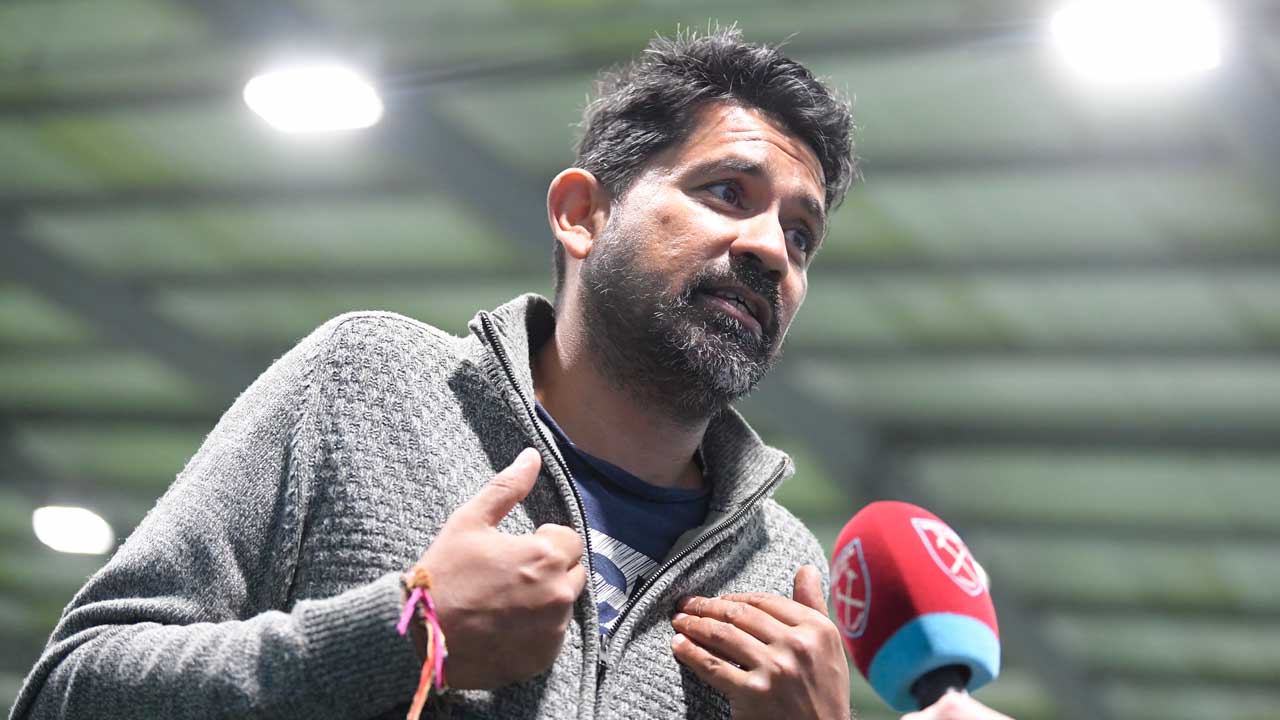
Football is massive and Asians love it. It’s the world game and people in every country love it.
One of the reasons we set up Inclusive Irons was that, even though we’ve got friends and family who come along to West Ham, some are not so keen because they can remember when football was not as welcoming a place. That is a shame because there is a massive community which West Ham can potentially tap into with more fans and more players.
Things have changed massively. There was a hostile atmosphere in the seventies and eighties, with the hooliganism, but people are much better behaved now. Football has become more welcoming.
The work the Club is doing in the local community is so important. When clubs like West Ham and their Foundation are coming into schools and putting on schemes during the holidays, it brings elite football into reach and makes it tangible and hopefully we’ll see more South Asian fans and players.
We want to see a local player play for the team. That’s why everyone loved Mark Noble. It doesn’t matter who they are or what colour their skin is, we’re going to get right behind them. With the community we have got, if we could bring a South Asian player in, everyone would love that.
Jackie Ferdinand is West Ham United’s Director of Safeguarding & Inclusion and played a leading role in the Club’s achievement of the Premier League’s Equality Standard Advanced level, recognising its ongoing dedication and commitment to equality, diversity and inclusion (EDI)…
It was the Club’s ongoing ambition, as part of our EDI objectives, to tap into our local community and remove the barriers for engagement.
We put together a business plan with [former Academy Director] Ricky Martin and invited Rashid to come along and what we’ve done is to put in place an infrastructure so we could build successfully.
Within the first 16 months, we have 27 talented individuals come into the Club who would otherwise not have had that level of exposure.
It was about bringing the Club and the community together and it’s been a learning curve for both. We have created a relationship.
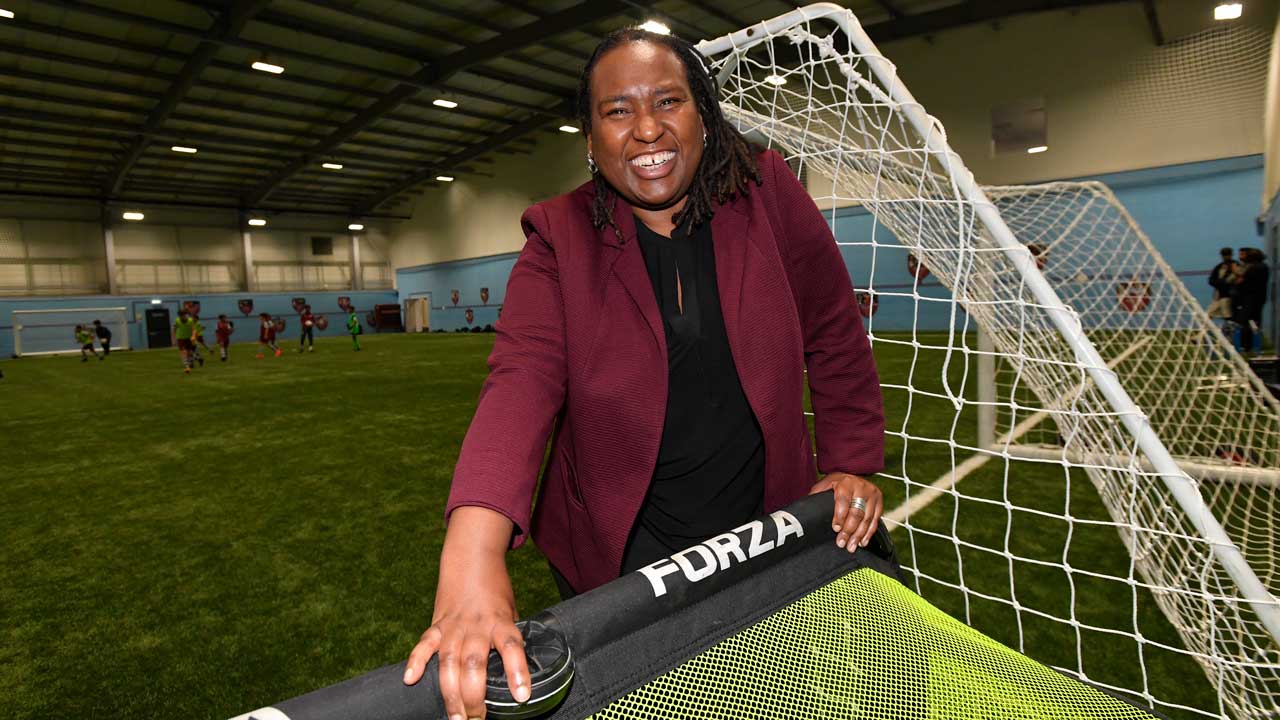
We saw during the parade to celebrate our Europa Conference League win, the local community came out to support the Club, and we now have a really strong bond.
Before, there was a myth that the two wouldn’t mix, but winning that final has shown that the South Asian population want to work with the Club.
What we’ve also done is bring coaches to an elite environment and its encouraging them to bring their children in too, so it’s a win-win on both sides.
We have created something sustainable that will give young players, both boys and girls, a relationship with us for the next ten years.
